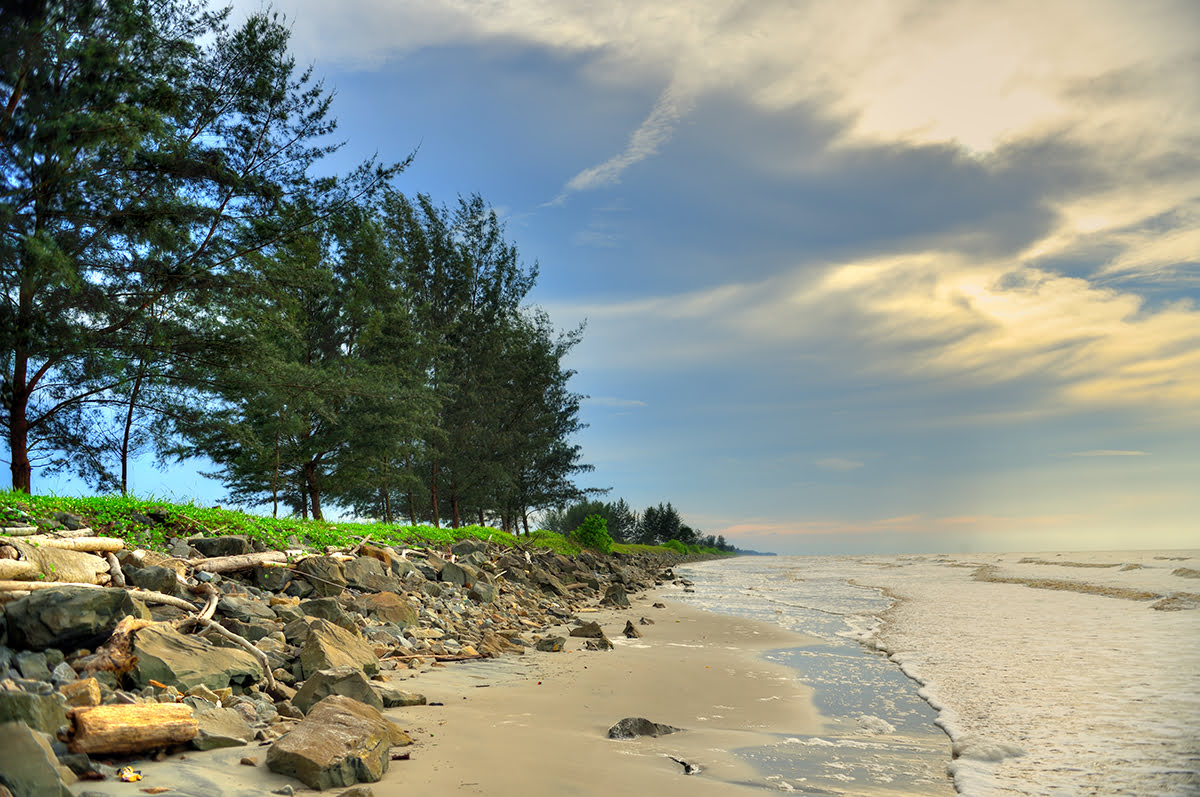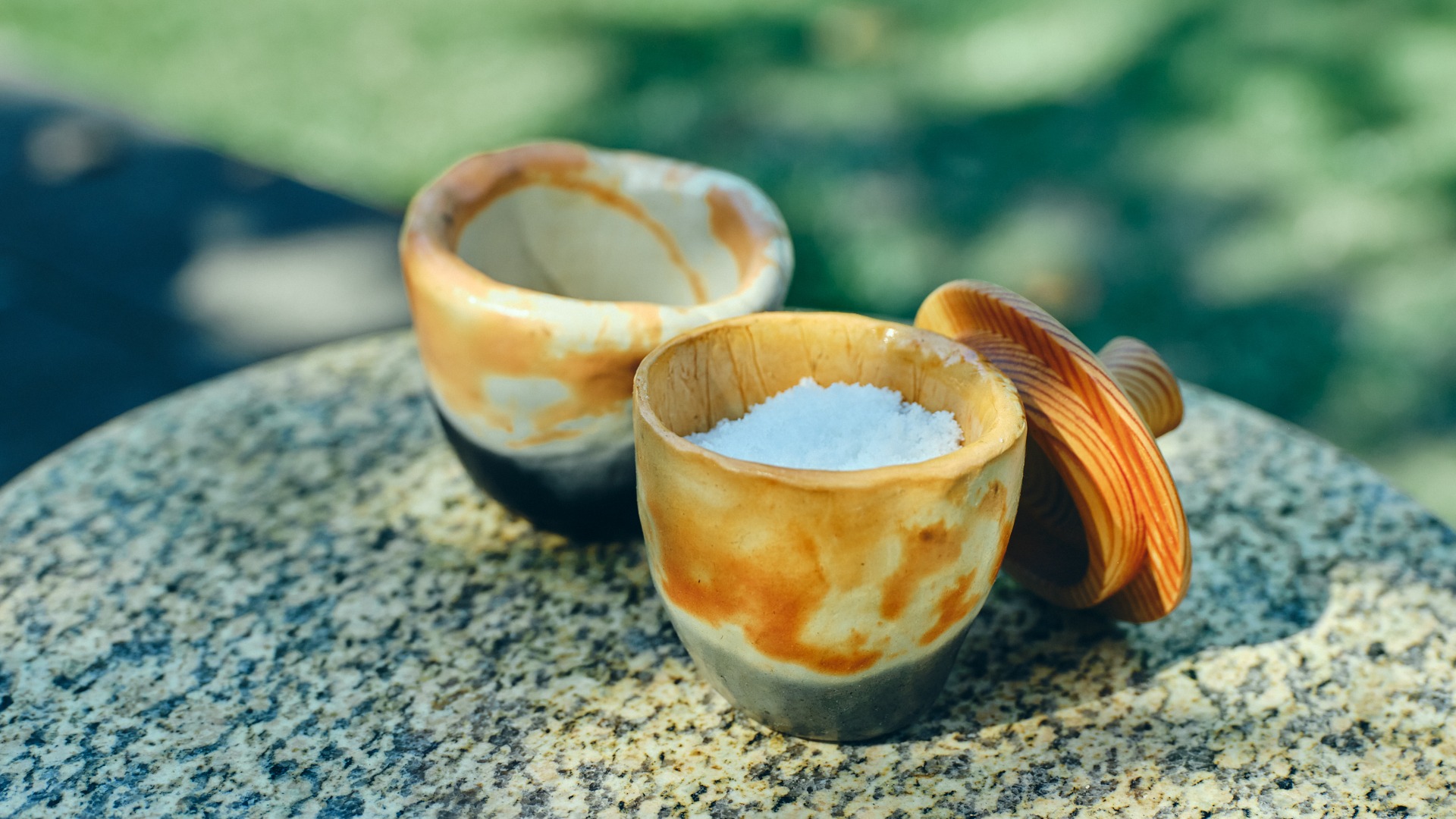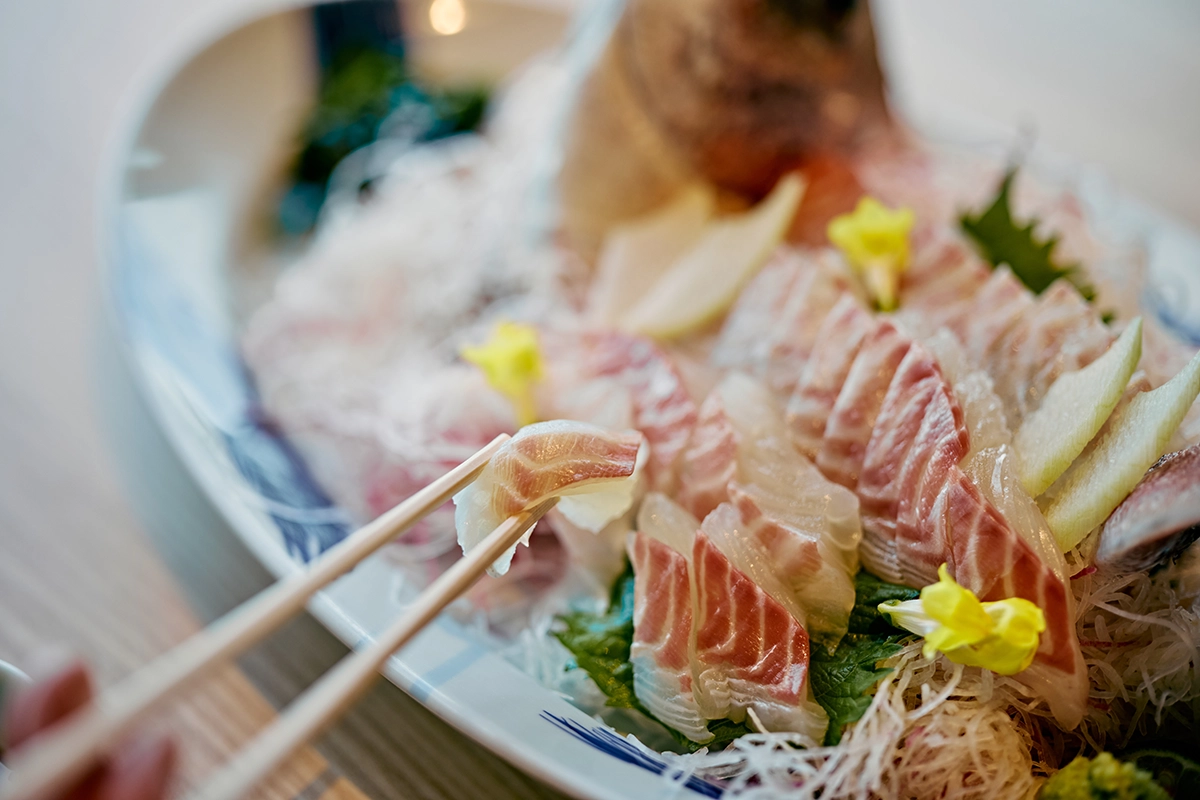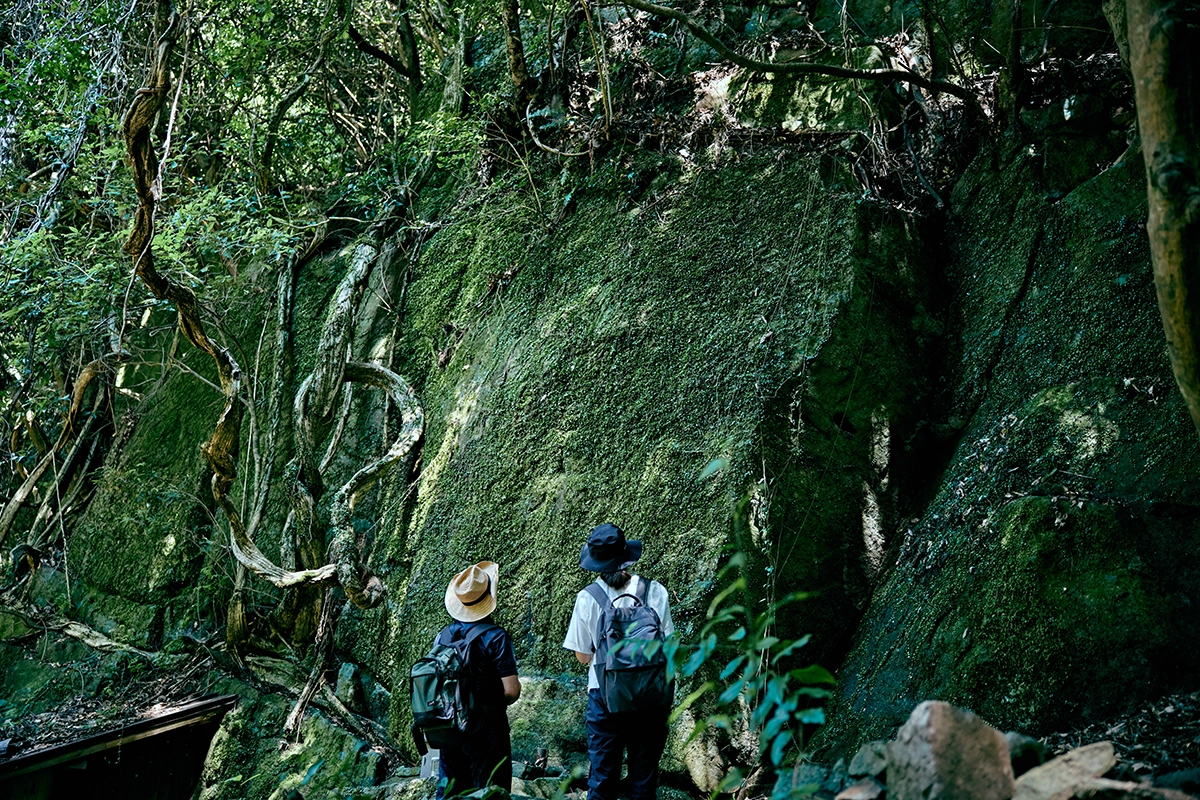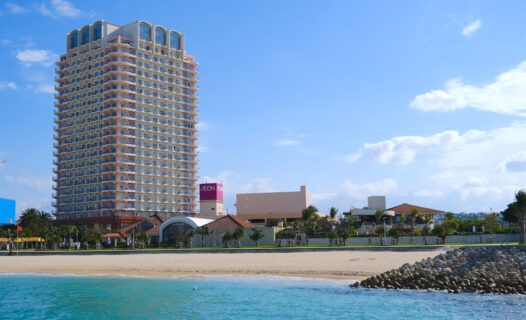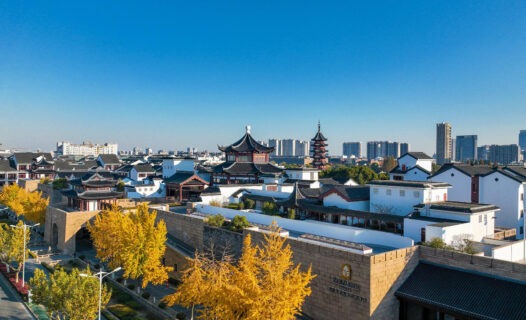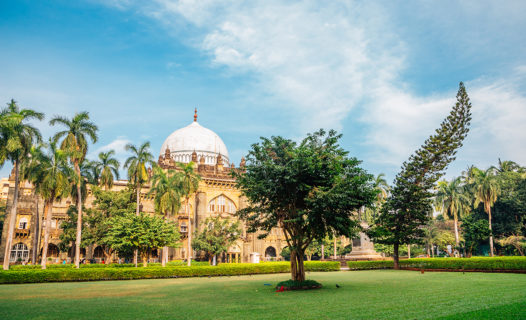Introduction
Welcome to the lush landscapes of Sungai Petani, where the gentle flow of the river meets the rhythm of traditional farming. Here, river farming is not just a method of cultivation; it embodies a way of life that has deep cultural and agricultural significance. Local farmers have nurtured the land for generations, creating a harmonious relationship with the river ecosystem that sustains their crops and livelihoods. This unique farming lifestyle offers a glimpse into sustainable practices that prioritize environmental stewardship and community well-being.
Engaging with these local farmers provides a rewarding experience, allowing visitors to learn about their eco-friendly techniques and the importance of sustainable agriculture. By supporting these practices, travelers can contribute to a thriving local economy while enjoying the beauty of rural life.
Discovering the River Farming Lifestyle in Sungai Petani
Imagine waking up to the soft sounds of nature, the sun peeking over the horizon as you step outside to the vibrant fields of rice paddies. This is a day in the life of a river farmer in Sungai Petani. The connection these farmers have with the river is palpable; it’s not just a source of water but a lifeline that nourishes their crops and sustains their families. The river provides fertile soil and a diverse ecosystem that supports not only rice but a variety of traditional crops.
Daily life for these farmers revolves around the rhythms of the seasons. From planting to harvesting, each phase is a celebration of hard work and dedication. As they traverse the fields, you’ll see them using traditional farming methods that have been passed down through generations. The farmers often work in harmony with nature, utilizing organic practices that enhance the health of the soil and the surrounding environment.
Visitors can witness firsthand the farming lifestyle that thrives along the riverbanks. Whether it’s helping with the planting of seedlings or learning about the intricate balance of the river ecosystem, engaging with local farmers offers a rich and immersive experience. You’ll come to appreciate how their daily lives are intricately woven into the fabric of the landscape, all while being surrounded by the stunning beauty of the countryside.
Sustainable Farming Practices: A Closer Look at Eco-Friendly Techniques
As you explore the agricultural heart of Sungai Petani, you’ll discover a commitment to sustainable farming practices that are both innovative and respectful of the environment. Many local farmers embrace organic rice farming, shunning harmful chemicals in favor of natural fertilizers and pest control methods. This dedication not only ensures healthier crops but also contributes to the overall well-being of the community.
One standout method gaining traction is the System of Rice Intensification (SRI). This technique focuses on enhancing the productivity of rice while minimizing resource use, showcasing how traditional knowledge can blend with modern practices. Farmers are also increasingly adopting permaculture practices, creating a self-sustaining agricultural system that promotes biodiversity and soil health.
Community-supported agriculture is another vital aspect of the local farming scene. By establishing direct connections between farmers and consumers, this model not only supports local economies but also fosters a sense of community. Consumers can participate in the agricultural cycle, receiving fresh produce while actively supporting sustainable livelihoods.
As you delve deeper into the practices of Sungai Petani’s farmers, you’ll find that their commitment to eco-friendly techniques is not just about growing food; it’s about cultivating a healthier planet for future generations. This harmonious approach to farming is a testament to the resilience of the local farming community and their dedication to preserving their cultural heritage.
Cultural Exchange: Bridging Communities Through Agriculture
One of the most heartwarming aspects of visiting Sungai Petani is the opportunity for cultural exchange. Volunteers often find themselves immersed in the rich traditions of the local farming community. Imagine gathering around a long wooden table, adorned with an array of colorful dishes, all made from fresh produce harvested that very day. These communal meals are not just about sharing food; they are a celebration of culture, laughter, and storytelling.
Local farmers take pride in sharing their culinary heritage, and volunteers are often invited to participate in cooking sessions. You might learn how to prepare nasi lemak, a fragrant rice dish cooked in coconut milk, or whip up a batch of traditional roti john, a delicious egg sandwich. Each recipe tells a story, and every ingredient has its significance, connecting you to the land and the people who cultivate it.
Volunteers often share their own cultural traditions, creating a beautiful tapestry of experiences. This exchange fosters friendships that transcend borders, reminding everyone that food and farming are universal languages. As you work side by side with the farmers, you’ll not only learn about their agricultural practices but also about their way of life, family values, and the importance of community.
One volunteer shared, “I never expected to feel so at home in a place so far away. The farmers welcomed me like family, and I left with a heart full of memories and recipes to share.” Such stories reflect the profound impact of these experiences, making every moment spent in Sungai Petani unforgettable.
A Day in the Life of a River Farmer: Sample Itinerary
Curious about what a day looks like for a river farmer? Here’s a sneak peek into a typical day that volunteers might experience, filled with hands-on activities and opportunities to connect with nature.
Morning
Start your day early, around 6:00 AM, when the sun is just beginning to rise. After a hearty breakfast featuring local delicacies, you’ll head out to the fields. Your first task might be planting seedlings in the rich, fertile soil, learning the traditional methods that have been used for generations.
Midday
As the sun climbs higher, take a break for lunch, enjoying a meal prepared from the morning’s harvest. After lunch, it’s time for weeding—an essential task that helps the crops thrive. You’ll be amazed at how quickly the time passes as you chat with fellow volunteers and farmers, sharing stories and laughter.
Afternoon
In the afternoon, you might assist with irrigation, ensuring the fields receive the perfect amount of water from the river. This hands-on experience teaches you about the delicate balance of the river ecosystem and its importance to sustainable farming.
Evening
As the day winds down, you’ll gather with the farmers for a communal dinner, reflecting on the day’s work and enjoying the fruits of your labor. This is a time to bond, share experiences, and soak in the serene beauty of the countryside.
Volunteering in Sungai Petani offers not just a glimpse into traditional farming methods, but a chance to immerse yourself in a lifestyle that celebrates hard work, community, and the environment.
Culinary Deep Dive: Farm-to-Table Experiences in Sungai Petani
Sungai Petani is a haven for food lovers, especially those who appreciate the farm-to-table movement. The region’s commitment to organic farming means that the ingredients you enjoy are not only fresh but also free from harmful chemicals. This ensures that every bite is packed with flavor and nutrients.
Local cuisine is a delightful blend of flavors, influenced by Malay, Chinese, and Indian traditions. As you explore the culinary scene, you’ll find dishes that highlight the region’s fresh produce. Imagine savoring ulam, a traditional salad made with fresh herbs and vegetables, or indulging in ikan bakar, grilled fish marinated in spices, all sourced from local farms.
Volunteers often get hands-on experience in the kitchen, learning how to prepare these mouthwatering dishes. You might pick fresh herbs from the garden, chop vegetables, and even try your hand at making sambal, a spicy chili paste that adds a kick to any meal. The joy of cooking with fresh, organic ingredients is unparalleled, and you’ll leave with not just recipes but also the skills to recreate these dishes at home.
One volunteer remarked, “Cooking with the farmers was one of the highlights of my trip. I never knew how much flavor could come from fresh ingredients!” This passion for food and sustainability is contagious, making every meal a celebration of the local farming community.
Festivals and Events: Celebrating Agricultural Heritage
One of the best ways to experience the vibrant culture of Sungai Petani is by participating in local festivals and events that celebrate agricultural heritage. Throughout the year, the community comes together to host lively gatherings filled with music, dance, and of course, delicious food.
The Harvest Festival is a must-see, where farmers showcase their bountiful crops and traditional performances fill the air with joy. Visitors can join in the festivities, sampling local dishes and learning about the significance of each crop. It’s a time for gratitude, celebrating the hard work of farmers and the abundance of the land.
Weddings and communal gatherings also provide a unique glimpse into local customs. These events often feature traditional music, dance, and elaborate feasts, allowing visitors to immerse themselves in the rich cultural tapestry of the community. One volunteer shared, “Attending a local wedding was an unforgettable experience. The warmth and hospitality of the community made me feel like I was part of something special.”
These festivals and events are not just about celebration; they are a testament to the resilience and unity of the farming community. By participating, you’ll gain a deeper appreciation for the cultural heritage that shapes Sungai Petani.
Practical Information for Travelers: Tips for Visiting Sungai Petani
Planning your trip to Sungai Petani? Here are some practical tips to ensure you make the most of your visit!
Best Times to Visit
The ideal time to experience rice planting and harvesting seasons is from May to October. During these months, you’ll witness the fields transform into a sea of green and golden hues, and you may even have the chance to participate in the harvest!
Transportation
Getting to Sungai Petani is a breeze. You can take a bus or train from major cities like Alor Setar or Penang. Once you arrive, local transport options such as bicycles and motorbikes are perfect for exploring the countryside and visiting nearby farms.
Nearby Attractions
Don’t miss the chance to explore local attractions such as the Mount Jerai and the beautiful beaches of Merbok. These spots offer a perfect balance of relaxation and adventure after a day of farming activities.
Safety and Health Guidelines: Staying Safe While Farming
While volunteering in Sungai Petani, it’s essential to prioritize safety and health. Here are some tips to keep in mind:
Vaccinations
Before your trip, check with your healthcare provider about recommended vaccinations. Staying up to date on your immunizations will help ensure a safe experience.
Field Safety
Working in the fields can be physically demanding, so wear appropriate clothing and sturdy shoes. Stay hydrated, and don’t forget to apply sunscreen to protect your skin from the tropical sun.
Health Precautions
Be mindful of local wildlife, especially when working near water. Always follow the guidance of your hosts regarding safety precautions in the fields.
Engaging in sustainable farming not only benefits the environment but also promotes physical health. Many volunteers report feeling more energized and connected to nature through their farming experiences.
Exploring the Local Ecosystem: Biodiversity in River Farming
Sungai Petani is a treasure trove of biodiversity, and the farming practices here play a crucial role in preserving the local ecosystem. The riverbanks are home to a variety of flora and fauna, creating a vibrant habitat that supports both agriculture and wildlife.
Farmers in the region often practice river basin management, ensuring that their farming techniques do not harm the delicate balance of the ecosystem. By working with nature, they promote biodiversity and contribute to environmental conservation efforts.
As you explore the fields, keep an eye out for native plant species and the various birds and insects that inhabit the area. The interconnectedness of farming and nature is a beautiful reminder of the importance of sustainable practices.
Transportation Details: Getting to Sungai Petani
Getting to Sungai Petani is straightforward, with several transportation options available:
By Bus
Buses run frequently from major cities like Alor Setar and Penang, making it easy to reach the farming community. The journey offers scenic views of the countryside, setting the stage for your adventure.
By Train
The train service is another convenient option, with stations located near Sungai Petani. This mode of transport allows you to relax and enjoy the picturesque landscapes along the way.
Local Transport
Once in Sungai Petani, consider renting a bicycle or motorbike to explore the area at your own pace. This not only provides flexibility but also allows you to soak in the natural beauty of the surroundings.
Seasonal Travel Insights: What to Expect Throughout the Year
Each season in Sungai Petani brings unique experiences for travelers:
Spring (March to May)
Spring marks the beginning of the planting season, when the fields come alive with activity. It’s a great time to witness the rice paddies being prepared and to participate in planting activities.
Summer (June to August)
Summer is the peak of growth, with lush green fields stretching as far as the eye can see. This is an excellent time for photography and exploring local flora.
Autumn (September to November)
Autumn brings the harvest season. Expect vibrant celebrations and the chance to partake in the harvesting of rice and other crops, an experience you won’t want to miss!
Winter (December to February)
Winter is cooler and perfect for exploring nearby attractions. The clear skies and pleasant temperatures make this season ideal for outdoor activities.
Shopping Guide: Discovering Local Markets and Products
No trip to Sungai Petani is complete without a visit to the local markets! Here, you’ll find an array of fresh produce, handmade crafts, and unique souvenirs. The farmer’s markets are a hub of activity, offering a chance to interact with local farmers and learn about their products.
Be sure to look for organic fruits and vegetables, as well as traditional snacks like keropok (fish crackers) and kuih (sweet treats). These markets not only support the local food movement but also provide insight into the agricultural practices of the region.
Commonly Asked Questions (FAQs)
Here are some common questions travelers have about volunteering and farming in Sungai Petani:
What should I wear while volunteering?
Comfortable, breathable clothing and sturdy shoes are recommended. Don’t forget a hat and sunscreen to protect yourself from the sun!
Are there accommodations available for volunteers?
Yes! Many farms offer accommodations for volunteers, allowing you to immerse yourself fully in the farming lifestyle.
Can I participate if I have no farming experience?
Absolutely! Farmers welcome volunteers of all skill levels, and they will provide guidance and support throughout your experience.
Fun Facts About River Farming in Sungai Petani
Did you know? Sungai Petani is known for its unique farming techniques that have been passed down through generations. Here are some fun facts:
- The region is famous for its high-quality organic rice, which is sought after both locally and internationally.
- Many farmers still use traditional tools, such as wooden plows and hand-held sickles, to maintain their connection to the land.
- The river is not just a source of water; it also serves as a habitat for various fish species, contributing to the local fishing economy.
These interesting tidbits highlight the deep-rooted agricultural heritage of Sungai Petani, making your visit all the more enriching.
Engaging with the river farmers of Sungai Petani is an experience like no other. From learning sustainable practices to sharing meals and cultural exchanges, every moment spent here is a chance to connect with the land and its people. By supporting local agriculture, you’re not just visiting a destination; you’re becoming part of a community that values tradition, sustainability, and the beauty of rural life.

